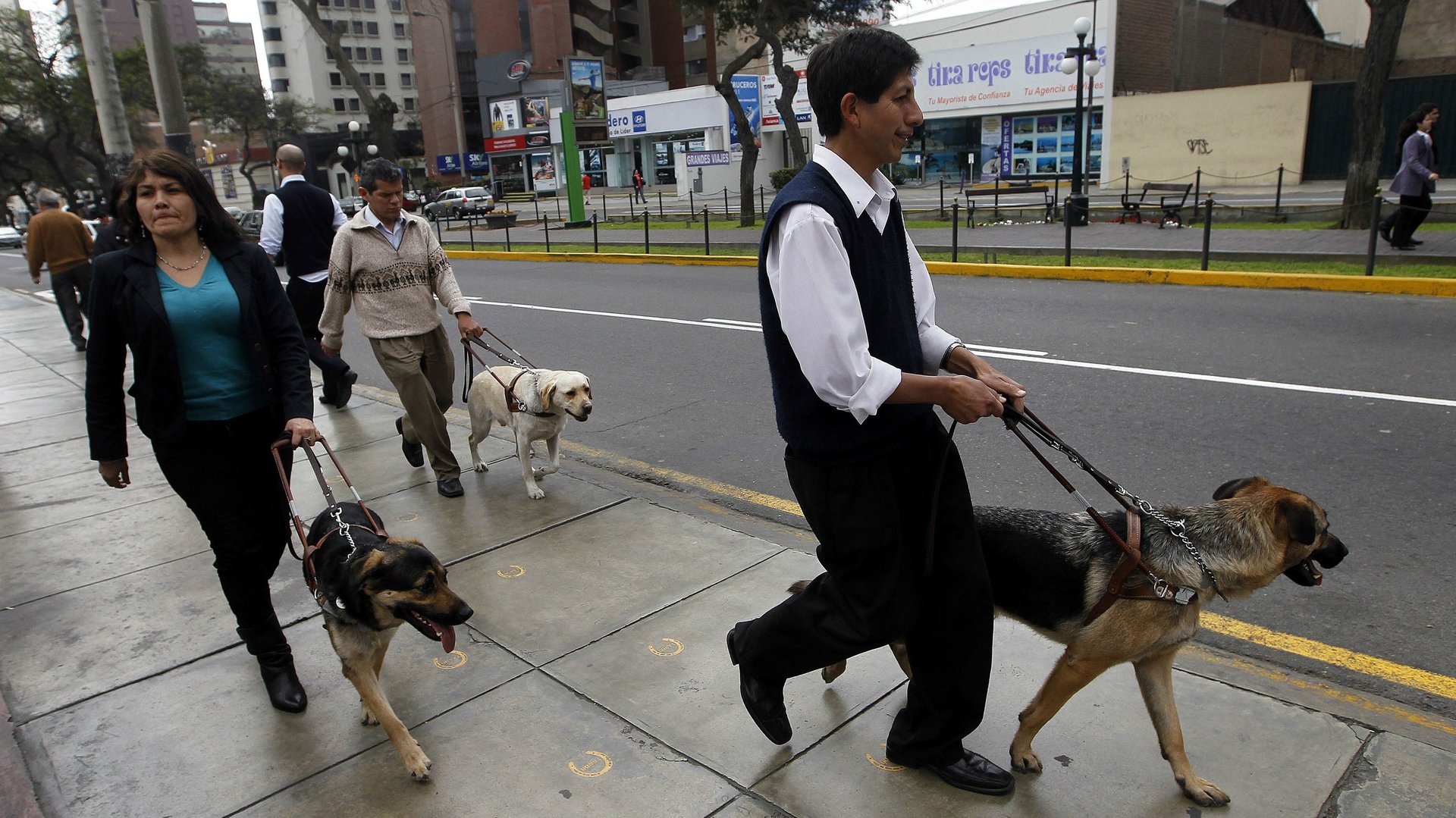The sad truth about guide dogs will make you love them more
Being a guide is one of the most noble things a dog can do (besides sniffing out bombs, drugs, endangered wildlife, infections in hospitals, and frankly just being the most loyal four-legged friend we could ever ask for), and it’s not for the faint of paw. A new study suggests puppies raised by tough-loving mothers tend to make better guide dogs than those who grew up coddled.


Being a guide is one of the most noble things a dog can do (besides sniffing out bombs, drugs, endangered wildlife, infections in hospitals, and frankly just being the most loyal four-legged friend we could ever ask for), and it’s not for the faint of paw. A new study suggests puppies raised by tough-loving mothers tend to make better guide dogs than those who grew up coddled.
Guide dogs serve people who have severely limited or no vision by helping them avoid obstacles and other dangers while walking. In the US, about 2% of people with impaired vision, or about 10,000 people, have guide dogs at any given time, according to Guiding Eyes for the Blind, a non-profit organization. UK estimates suggest that there were about 5,000 dogs working in the country in 2015.
Although these dogs are usually given free to their owners, it can cost around $50,000 to breed and train them. Training is hard: Puppies get basic obedience training and then another year or so of specialized guide-dog schooling before being paired with an owner. Even with all that classwork, not all potential guide dogs end up well-suited for the role. If this is the case, the dog may still have a good life elsewhere as a regular pet, but the cost of training and breeding is sunk.
Researchers from the universities of Pennsylvania and Arizona recently published (paywall) a study suggesting that the very earliest stages of a puppy’s life may impact how well they do in school later on. The more mothers licked and nuzzled their puppies, the less likely they were to graduate.
Emily Bray, who studies animal cognition, led a team that followed 98 puppies in 21 litters. They watched over 115 hours of video of puppy-mother interactions, according to Wired, and tracked how much time mothers spent with their puppies, and how they nursed them.
When mothers spent less time with their puppies and had to nurse them standing up, the puppies were more likely to make it all the way through training up to two years later. Puppies who were licked and coddled more often failed out because they were more easily startled by moving toys placed in their pens, suggesting they wouldn’t stay calm and cool in new situations—an essential quality for a guide dog.
“It’s good for the puppies to have these small challenges to overcome,” Bray told NPR. These puppies learn how to fend for themselves and face mild adversity—like maybe not having Mom around for a good cuddle.
That said, while colder mothers may be a good parenting strategy for raising guide dogs, it might not be so good for dogs with more typical futures; other studies (pdf) have shown that dogs with more doting mothers may do better in more typical social settings with people.
Also, the coddled dogs are likely to still be very good boys and girls even if they don’t make it through training school. “If they’re identified earlier they can be re-homed earlier, so they can actually go and live their life as the pet they were meant to be,” Naomi Harvey, a dog behavior researcher at the University of Nottingham, told Wired.